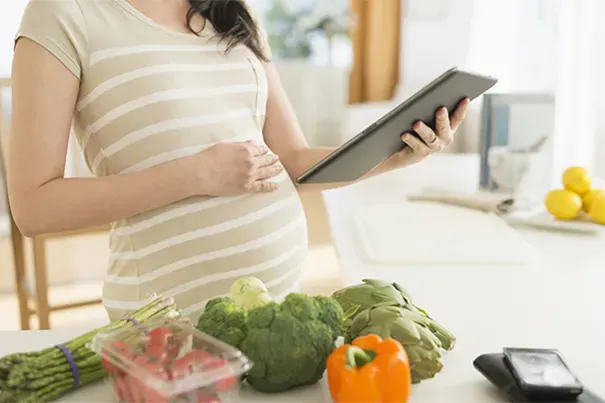Is Eating Beetroot During Pregnancy Good? Potential Benefits & Side Effects
Pregnancy is that period in life when the expectant mother naturally becomes more cautious of her diet. With a growing life dependent on them, they strive to incorporate foods that provide essential nutrients for their health and the development of their baby. Among many nutrient-rich food options, beetroot is one such superfood that most tend to include in their diet. How good is beetroot while pregnant? Are there any dangers of consuming beetroot during pregnancy? In this blog, we take a look at the benefits, safety and side effects of taking beetroot during pregnancy so that you are able to make an informed decision.
Is Beetroot Good for Pregnancy?
The short answer is- yes. Beetroot is good for pregnancy because it contains exceptionally high nutritional value. Beetroots have a beautiful red colour and an earthy flavour, containing a lot of essential vitamins, minerals and antioxidants. They are an excellent source of folate, vitamin C, fibre, manganese, potassium and iron; each of which plays a role in maintaining a healthy pregnancy. There are many ways beetroot consumption can facilitate the processes of both maternal health and foetal development. However, it is crucial to consume it in moderation and understand its side effects before consuming beetroot during pregnancy.
Benefits of Beets During Pregnancy
1. Relieves Constipation[SM3]
Constipation is a common experience for many pregnant women. It occurs as a result of hormonal changes and the pressure of the expanding uterus on the intestines. Beetroot is high in dietary fibre which reduces constipation by encouraging normal bowel movements. Therefore, integrating beetroot into a pregnancy diet would enhance the digestive health of the expectant mother.
2. Prevents Neural Tube Defects
Beets carry a large amount of folate, an integral vitamin B, responsible for the prevention of neural tube defects caused by improper development in the foetus. Neural tube defects are critical forms of birth defects affecting the brain and spine. It is necessary to have appropriate consumption of folate in early pregnancy to avoid this condition. Adequate beetroot consumption can ensure the accomplishment of sufficient amounts of folate to improve foetal development during pregnancy.
3. Prevents Iron Deficiency
Iron intake is very important during pregnancy because it supports increased blood volume and the circulatory system of the developing baby. Beetroot is an excellent natural source of iron; therefore, its consumption prevents iron deficiency and anaemia which are normally experienced by pregnant women, leading to several complications like fatigue. The inclusion of beetroot in the diet can satiate their daily recommendation of iron intake and keep the expecting mothers healthier and energised.
4. Reduces Preeclampsia Risk
Beetroot juice is great in reducing blood pressure, therefore, reducing the chances of the development of life-threatening complications of pre-eclampsia in women. Regular consumption of beetroot juice by pregnant women may minimise the risk of development of pre-eclampsia and maintain a healthy pregnancy.
5. Works Against Foetal Growth Restriction
Foetal growth restriction is a condition where the baby has not reached its expected size in the uterus. Nutrition is an essential aspect that prevents this condition; beetroot intake ensures an adequate supply of vitamins and minerals, which enhances foetal growth. Eating beets during pregnancy can offer benefits for the general health and growth of the child.
Risks and Side Effects of Consuming Beets During Pregnancy
While beetroot is nontoxic to a pregnant woman, caution should be exercised regarding possible side effects. One such side effect of beetroot during pregnancy is beeturia - a condition in which urine becomes pink or red after consuming beets. Although this is harmless, if the condition lasts longer than a few days, then the situation can be alarming. High levels of oxalates in beets have been known to contribute to kidney stone formation in certain individuals. Pregnant women who are vulnerable to the development of kidney stones should therefore seek a doctor's opinion before they incorporate large amounts of beetroot in their diet.
Excessive intake of beetroot during pregnancy can also lead to oxygen deficiency in the blood. Therefore, it is best to consume beetroot during pregnancy in moderation. It is always a good idea to communicate any dietary change with a health provider.
Summing It Up
Beetroot can be of great advantage in the diet of an expectant mother by preventing her from constipation and defects associated with the neural tube while reducing the threat of pre-eclampsia. Generally speaking, the nutrient profile is beneficial for both maternal health and foetal growth. However, the consumption of beetroot should not be overindulged and must be taken in moderation or as directed by the healthcare provider. This helps ensure that both mother and baby stay healthy.


